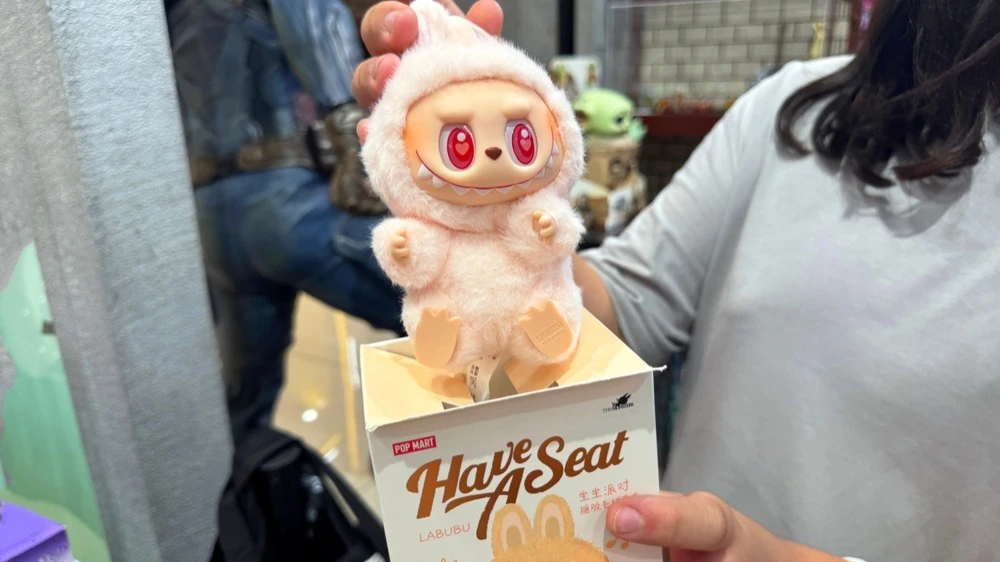Shares of manufacturer Labubu collapsed ahead of the report. Were investors worried for nothing?
China's Pop Mart managed to increase quarterly sales several times over, strongest in Western markets

Shares of Chinese manufacturer of viral dolls Labubu Pop Mart collapsed on October 21 at the strongest pace since early April. The sell-off occurred before the publication of sales data for the last quarter: the market feared their slowdown. However, the company, on the contrary, reported strong - 2.5 times - revenue growth in China and foreign markets.
Details
Pop Mart shares on the Hong Kong Stock Exchange plunged 8.1% on Tuesday. According to Bloomberg, the securities became the worst in terms of dynamics among the shares of mainland Chinese companies traded in Hong Kong. Quotes of a number of other companies from the so-called wave of "new consumption" in China also fell: the securities of toy manufacturer Bloks - by 4%, jewelry company Laopu Gold - by 3.9%.
Pop Mart's sales have accelerated sharply since the second half of last year, thanks to its Labooboo soft toy, which unexpectedly became a global hit. "Investors may be wary of a slowdown in sales growth due to last year's high base," Bloomberg quoted Stephen Leung, head of the Hong Kong unit of Singapore-based brokerage firm UOB Kay Hian, as saying.
"Some investors laid down a more cautious view on third-quarter revenue growth," Morningstar analyst Jeff Zhang wrote. - While most of the new products in the Labubu and Twinkle Twinkle lines sold out, year-over-year growth could slow from more than 200% in the first half of the year."
How Pop Mart actually reported
Pop Mart after the close of trading in Hong Kong reported strong revenue growth of 245-250% for July-September compared to the same period in 2024. The toy maker's sales in mainland China increased by about 190%, while sales in markets outside of China increased by almost 370%.
The popularity of Pop Mart dolls in Western markets continued to grow faster than elsewhere, Bloomberg notes. In the Americas (meaning geographically), third-quarter revenue soared nearly 14 times, in Europe by about 740%, while Asia-Pacific sales increased 170-175%.
Context
Even after the collapse of quotations on October 21, Pop Mart shares are traded almost 180% more expensive than it was at the beginning of the year. However, in recent months, the company's securities have lost momentum and now stand 25% below the peak reached in late August: the impact of profit taking by investors and their doubts that the frenzied demand for the company's products will continue, Bloomberg writes.
Traders have ramped up bearish bets: according to S&P Global, the share of short positions (per share declines) in free float rose to 1.4% this month, the highest in nearly a year.
This article was AI-translated and verified by a human editor
